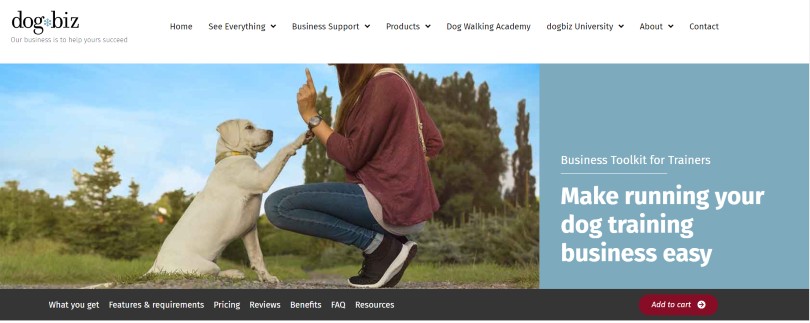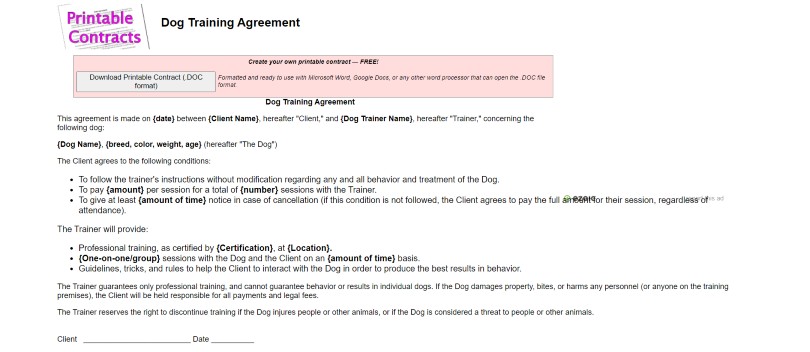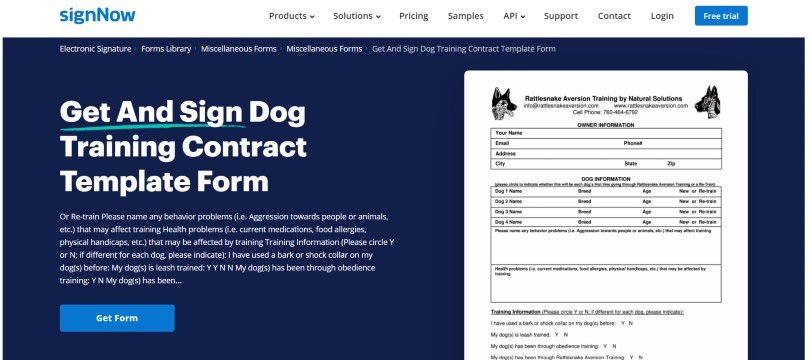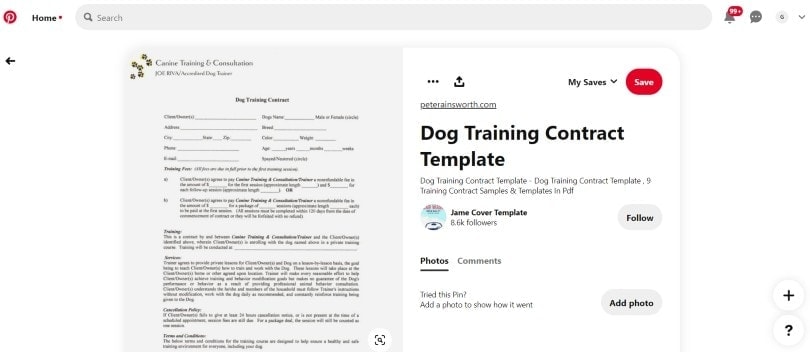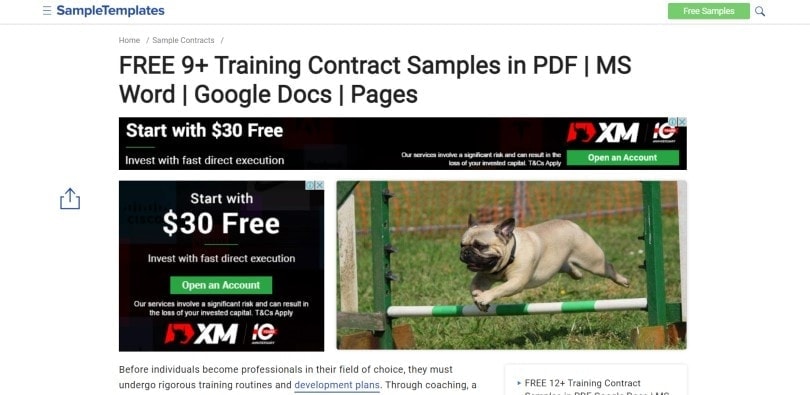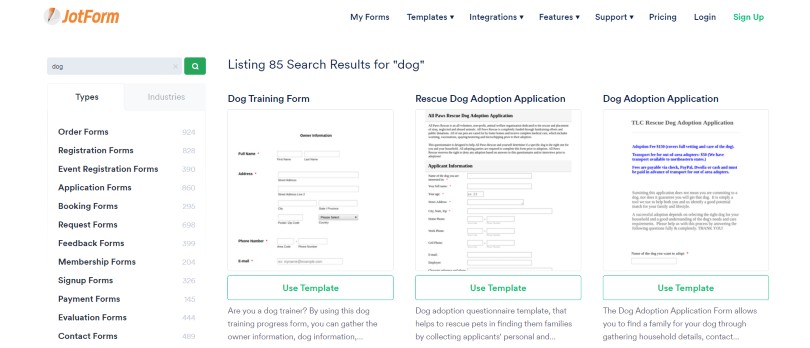6 Dog Training Services Contract Templates (PDF) in 2024

Updated on
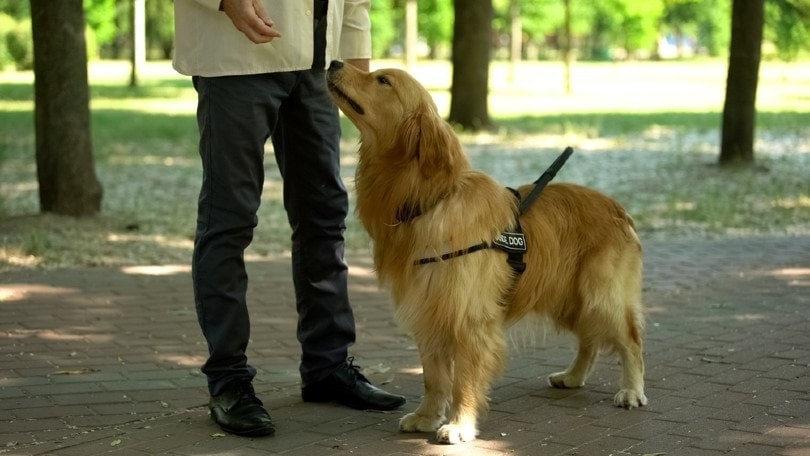
If you’re ready to launch your new dog training business, you’ll want to make sure you have all the pieces of paperwork that you need to protect yourself, your clients, and the dogs that you work with!
Whether you’re working with clients in group dog training sessions, offering boarding and training, or creating bespoke packages to suit individual customers, using contracts is essential. They help protect your business and give confidence to your clients that you’re both protected if anything happens to go wrong.
If you’re a dog owner working with a trainer who doesn’t offer their own contract, consider asking them to agree to and sign a contract that you provide instead.
If you’re not sure where to start, we rounded up a range of different contracts to suit a variety of scenarios. Choose the right one to suit you, fill in the details, print, and sign!
Why Should I Use a Contract for Dog Training Services?
Working as a dog trainer can be an incredibly rewarding job, but as with anything, things can go wrong. Having a clear contract in place helps your clients understand the process if something happens. Dogs can get injured using training equipment or become sick and require veterinary care when boarding with a trainer. Detailing what happens in these kinds of situations means you and your clients will be on the same page regarding what to do.
It’s also important to specify your rules regarding canine vaccinations and which ones dogs need to have before attending your training sessions.
Using a contract protects you and your clients and ensures that everyone knows the procedures and policies in case of accidents, cancellations, or any other incidents that may arise.
If you’re employing a dog trainer to help you reach your goals with your dog, it’s essential to ask them if they use a contract. If not, you should suggest this as something you want to put in place. Knowing who’s going to be responsible for veterinary bills, if you’re liable to pay when you miss a training session, or how much notice you need to give if you want to cancel a session is vital information. It may feel overly cautious to request a contract, but using one ensures that both parties have agreed in advance on how to deal with each scenario.
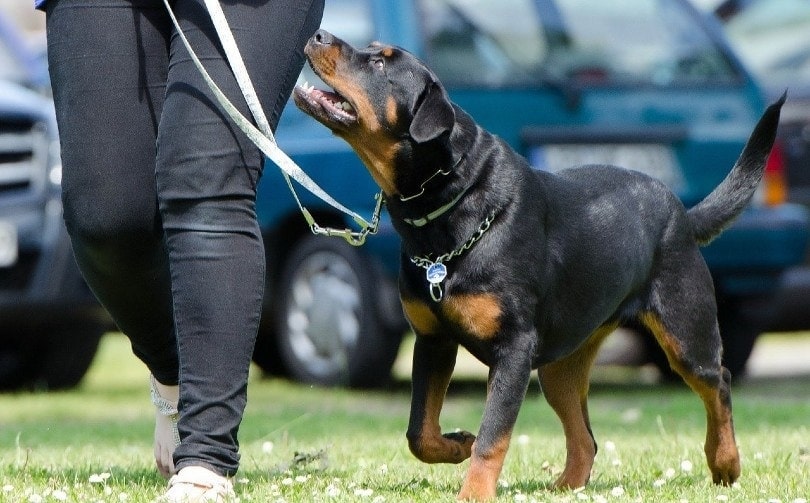
Most Important Aspects to Include in Your Dog Training Services Contract
As you’re starting to think about building a contract for your dog training business, you’ll want to make sure it includes everything that you need to know about each dog in your care and covers your terms and conditions.
For each dog, the minimum that you’ll need to know before you develop a training plan for them is their previous training and age. The level of detail that you need to add to your contract will depend on the type of training that you’re offering. For in-person group training sessions, you probably won’t need to know if a dog is crate trained or whether they need medication. If you’re offering boarding and training packages, however, that information will be vital.
- Dog’s name
- Breed
- Color
- Weight
- Sex
- Age
- If spayed or neutered
- Level of training
- Recall ability
- Ability to walk on a leash
- Proof of vaccinations and flea control
- Ongoing medications
- Veterinarian details
- Level of socialization with other dogs
- Activities that they enjoy/dislike
- Behavior around other dogs
- Behavior around people
- Previous training
- Crate training
- Feeding instructions
- Any history of aggression/bites
- Owner’s goal or concerns
- If crate trained
- Details of insurance
- Emergency contact details (for owner and/or third party)
- Your protocol in case a dog requires veterinary treatment
- Your standard of care
- Risk of loss statement
- Policies in case of cancellation/termination
- Limitations and liabilities
- Refund policy
- Client responsibilities
The 6 Dog Training Services Contract Templates:
1. Dog Biz Toolkit
Besides providing detailed contracts and waivers for a variety of training scenarios, including day training, public classes, and training with boarding packages, this business toolkit from Dog Biz contains all the paperwork that you need to launch your dog training business. You’ll also get access to administrative aides, including client logs, testimonial request forms, vet communication forms, and initial intake forms!
Everything can be downloaded immediately, or you can opt to receive a thumb drive with all the documents. You can edit each document to add your logo or make any changes to the wording.
2. Printable Contracts Dog Training Agreement
If you’re looking for a basic and free contract, then the Dog Training Agreement from Printable Contracts is a great place to start. This outlines a brief agreement between the client and trainer, detailing what will be provided in terms of payments due, cancellation periods, and the number and length of sessions.
It also offers a short disclaimer in case of damage or harm to property or personnel. While this contract isn’t a detailed as some other options, it’s a good starting point.
3. SignNow Dog Training Contract Template Form
This SignNow Dog Training Contract Template Form allows you to add your logo, identification, and contact details and request information about behavior issues, health problems, medications, allergies, and other important details about each dog that’s going to be in your care.
You can share the edited contract with your clients, and they can either add an electronic signature or print out the form and manually sign it before returning it to you.
4. Pinterest Dog Training Contract Template
You’ll need to edit this Pinterest Dog Training Contract Template to include your own details and logo, but it outlines the length and cost of each session, services supplied, goals, cancellation policy, and general terms and conditions.
There’s also a useful details section in the footer of the contract, which allows space to detail your experience, preferred training method, contact details, and confirmation that you’re fully insured. Adding this to your contract is a great way to offer peace of mind to potential clients, while reminding them of your professional experience.
5. Sample Templates Dog Training Contract
This package of nine free training contract samples includes one for dog trainers. It has areas to record proof of vaccinations and the course dates and prices that each client has signed up for. It also details terms and conditions, including health and safety, responsibility, and liability. You’ll need to edit the PDF to include your details.
This is a good contract option for a dog owner to offer a trainer who doesn’t yet have a contract in place. You may want to make sure your dog is fully protected by asking your trainer to sign it.
6. Jot Form Dog Templates
Jot Form allows you to create online forms to share with your dog training clients. This is an easy way to keep an electronic record of your clients and their dogs’ details. These templates are fully customizable, allow you to collect training fees, and help speed up those administrative tasks that always end up taking longer than you might expect.
Choose from a range of different templates as a starting point as inspiration.
What Other Information Should a Dog Trainer Be Provided?
The contract that you decide to use will depend on the kind of training services that you’re going to be offering, with options including:
- Group training sessions
- Private training sessions
- Day-care and training combination
- Boarding and training combination
- Online training sessions
For shorter sessions, like group training, you won’t need as much information as for day-care or boarding packages offered alongside training. It’s a good idea to create a different template for each type of training that you offer. This way, clients won’t need to fill out unnecessary details for shorter sessions, and you’ll have all the information that you need for longer sessions.
For any type of training, it’s a good idea to include a disclaimer giving permission to use any photos and videos that are taken during training sessions. These are ideal for marketing and advertising your business, but you must make sure all clients agree to allow you to use the images and recordings.
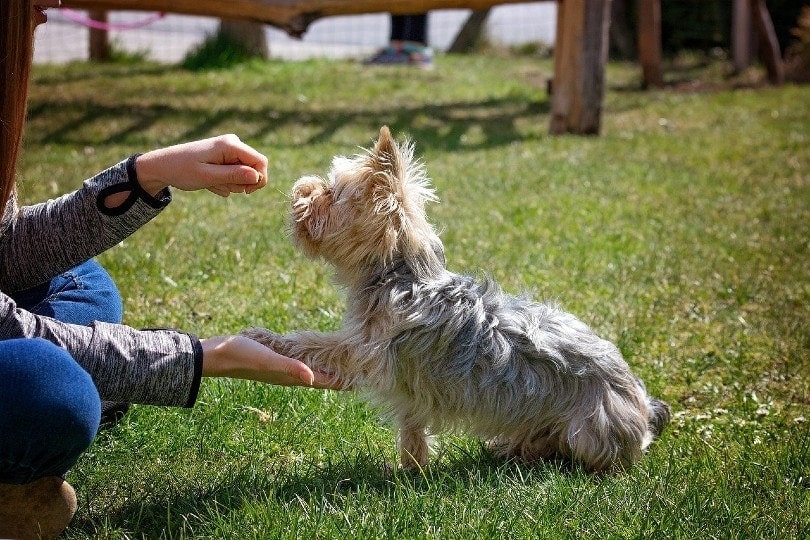
Dogs Safety During Training
When planning your dog training sessions, it’s vital to consider how you’re going to keep dogs and their owners safe.
You could include a short section in your contract detailing what you expect from owners in terms of keeping their dogs on a leash, letting you know if their dog has significant reactivity issues with other dogs before signing up for a course, and so on.
As a trainer, if you’re going to offer residential training courses for dogs, it’s important to consider how you’ll keep those dogs safe.
- Will each dog have their own designated kennel?
- How many dogs will you exercise together?
- Will you exercise them on leash, off-leash, or a combination?
- How will you deal with dogs that have behavior issues toward other dogs?
If an accident does happen, make sure your contract includes sections for the dog owner to add details of their veterinarian and an emergency contact in case you can’t get hold of the owner. It’s also important to include details about who will be liable for the veterinary fees, though this may depend on the specifics of each incident.
You might also want to insist that every dog is appropriately insured before you accept them on a residential training program.
Do I Need Special Insurance to Be a Dog Trainer or Use One?
Having the correct insurance for your dog training business is vital. The exact type that you need will depend on what kind of training activities you offer. At the minimum, every trainer needs general liability insurance. This protects you against damage to property or injuries to third parties.
It’s important to make sure your general liability insurance covers the personal property of others while it’s in your care or control. Many policies exclude these automatically, but since dogs are considered personal property, you need to find a policy that covers them. If a dog injures themselves when in your care, eats something that they shouldn’t, or otherwise does something that requires veterinary care, you’ll need to be able to claim this under your insurance.
If your business also involves transporting dogs in your care in a vehicle, you’ll also need auto insurance that covers you for using your vehicle for work purposes. If you offer dog boarding overnight, lease facilities, or work with training equipment, you’ll also want property insurance to cover the building that you use and its contents.
If your dog training business is large enough that you employ other trainers, admin assistants, or dog walkers, you’ll need to look into insurance to cover your employees as well.
Dog owners shouldn’t require any particular insurance to use a dog trainer, but it’s always a good idea to ask if you can see a copy of your trainer’s policy.
Conclusion
Dog training is a fun and rewarding job, but just because it involves significant physical work, that doesn’t mean there isn’t plenty of paperwork to be completed as well! Taking the time to create a series of contracts specifically for each service that you offer will help your clients feel confident in you and your business. If the unthinkable does happen, it’s always better to be prepared, and having a contract means everyone will be on the same page.
These six templates can help you get your dog training business off to a great start. If you’re a dog owner, asking your trainer to sign a basic contract will help give you peace of mind if you do need to cancel sessions or your dog has an accident.
It’s a good idea to get a lawyer to look over your contracts once you’ve prepared them, as they’ll be able to check any state-specific legislation and ensure that everything is correct.
See Also:
- Can Dogs Carry Bed Bugs? What You Need to Know!
- What Happens to a Dog Who Eats Table Scraps? The Surprising Answer!
Featured Image Credit to: Motortion Films, Shutterstock


